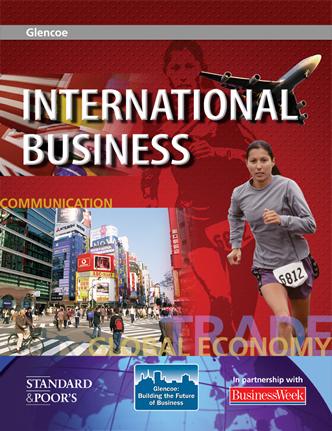
International BusinessChapter 8: Business Ownership and EntrepreneurshipBusinessWeek OnlineRead this article. Then write a paragraph about what motivates social entrepreneurs. A Pocket-Size Famine FighterA small French company has a lofty goal: Helping Africa find a way to help itself through a nutrition product called Plumpy'nut Three years ago, Fatchima Cissé decided she had to act to help the 250,000 malnourished children in her drought-stricken northern Africa country of Niger. So the 54-year-old pharmacist took over the lease of a small local food factory in the capital Niamey, employed a team of 10 workers, and started making nutrition products to sell to international aid agencies. Until this summer, Cissé's factory lost money. Then the aid organization Médecins Sans Frontières put her in touch with a little-known French company with a revolutionary product that has turned her business around. "We're more than doubling capacity, and I think we'll be in the black in no time," she says. The obscure outfit with the revolutionary product is Normandy-based Nutriset, a company of fewer than 50 employees that's quietly changing the face of humanitarian aid in Africa. From humble beginnings 20 years ago, Nutriset has moved onto big things. In 2000, it launched a vitamin-packed paste called Plumpy'nut, a product that helped save the lives of 30,000 malnourished children in Darfur, Sudan, alone last year. FOOD REVOLUTION. Today, the peanut-based spread is used in more than 50 developing countries around the world and has quickly become the favored product of nongovernmental organizations (NGOs) and U.N. food-aid groups. Nutriset's French factory now produces 30 metric tons (about 33 U.S. tons) of paste a day. "It has completely changed how we deal with malnutrition," says Dr. Isabelle de Fourny, deputy director of Médecins Sans Frontières in Niger. "In countries where there are few doctors, we can increase our capacity to feed children tenfold." Plumpy'nut may sound simple, but it's a revolutionary way to address severe malnutrition. Unlike other products previously used in famine relief, it doesn't need added water, a precious commodity that's often contaminated or in short supply during a famine. The sweet paste packs 500 calories per each 92-gram (3.25 ounces) sachet and can be eaten straight from the bag, allowing mothers to feed their children at home rather than sending them to feeding centers or hospitals where infection can spread quickly. R&D FEEDBACK. The paste is the brainchild of nutritionist Andre Briend. After years spent developing solid therapeutic food products in Africa, the Frenchman hit on the idea of a ready-to-eat paste in 1997. He soon persuaded fellow countryman Michel Lescanne to provide the financial backing, and they launched the whimsically-named Plumpy'nut three years later. Half-charity, half-company, Nutriset says it's the only 100% humanitarian food-product business in the world. Unlike its main competitor in Norway, Compact AS, it doesn't sell its mixes as fortified food to the military or athletes. As well as Plumpy'nut, Nutriset manufactures therapeutic milk products that it sells exclusively to NGOs and U.N. agencies at a small profit. That's not to say Nutriset doesn't make money. Last year, it generated sales of almost $15 million, double that of 2001. The increase was mostly from ramped-up demands for Plumpy'nut, which sells for 35 cents a sachet. However, Lescanne is careful to point out that Nutriset doesn't benefit from human suffering, and to that end reinvests all profits into R&D for new food products. "Making money isn't our goal," he says, "the point is to feed children." SELF-HELP INITIATIVE. The fruits of that investment in research will show later this month, when Lescanne plans to launch Supplementary Plumpy, a paste designed to prevent malnutrition in adults. During times of conflict or natural disaster when food is scarce, three to four sachets a day will provide all of an adult's required daily vitamins and minerals. A second, as yet unnamed, product designed to alleviate severe malnourishment in babies that are being weaned, is currently being tested with mothers in Ghana. In the long term, Lescanne's dream is to give Africa the means to help itself. His most ambitious project has been to develop a network of franchises on the continent, where local producers, such as Cissé make Plumpy'nut. They buy the complex vitamin mix made by Nutriset in France and add peanuts, sugar, and powdered milk from local supplies. Producing Plumpy'nut right in the areas where it's most needed also saves vital time and import costs for cash-strapped NGOs. "We consider it our responsibility to ensure the sustainability of this product through franchising," says Nutriset Sales Manager Isabelle Sauget. Thanks to recommendations from groups including Médecins Sans Frontières and USAID, Nutriset now receives an average of one inquiry a day from interested franchisees. So far, it has set up on-the-ground businesses in Niger, the Congo, and Malawi, and plans to take the project to Nepal, Zambia, and Zimbabwe in the near future. PEANUT SPREAD. Cissé's operation is set to make a vital impact on aid work in Niger, where up to 15 children die from hunger each day. U.N. charity Unicef aims to feed 160,000 malnourished children by yearend. In the next two months, Cissé plans to double her workforce to 20 and increase production from 400 kilos (882 pounds) to one metric ton (1.1 tons) a day. If the crisis in Niger abates, Cissé hopes in the future to supply peanuts to other Plumpy'nut producers in Africa. Sadly, with hundreds of millions of malnourished children around the world, Nutriset has a virtually never-ending market for its products. By Esha Bhandari and Rachel Tiplady Copyright 2000–2006 by The McGraw-Hill Companies Inc. All rights reserved. |  |















